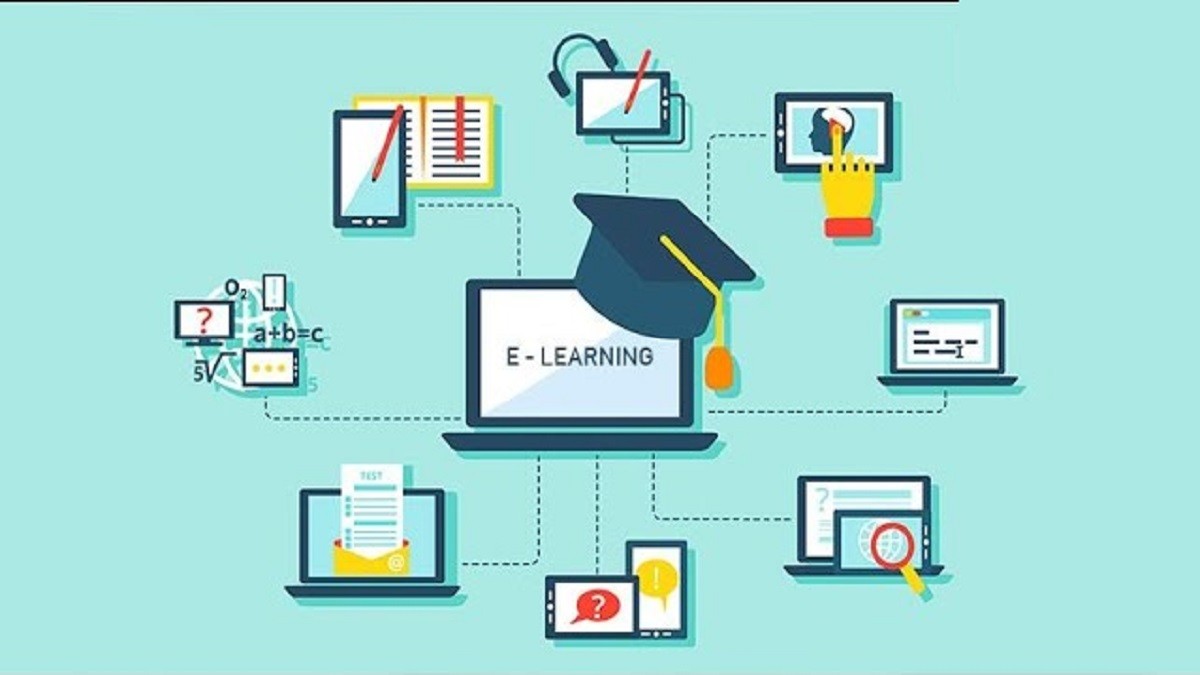

Consultant for Project Evaluation
22/12/2024 www.akhtaboot.comAmman, Jordan
others
Job requirements
-
5 - 16
-
Senior (Team Leader/Staff Supervisor)
Description
Terms of Reference (TOR)
Consultant for External Project Evaluation
- Background
Founded in 1994, La Chaîne de l’Espoir (CDE) is an international NGO headquartered in Paris, France. Its mission is to strengthen healthcare systems and provide to everyone, especially children, equal chances and opportunities of survival and development.
CDE is currently active in thirty (30) countries, and it uses a global approach, mainly focusing on children, mothers, and disadvantaged communities. Find our activities briefly elaborated as follows:
- Prevention and screening from an early age, mainly through school health programs.
- Care and surgery to meet the most urgent needs of children and their mothers.
- Training and transfer of skills to local teams (capacity building) thanks to our international network of experts in all areas of surgery.
- Construction and equipment of hospital facilities adapted to local needs.
CDE Jordan is currently implementing the project “Improving Congenital Orthopedic Anomalies detection and management in Jordan” with the aim of improving access to holistic care for vulnerable children and young adults with or at risk of disability due to congenital orthopedic anomalies.
Duration: September 2022 - August 2025 (36 months)
Donor: Agence Française de Development (AFD)
Location: Amman, Irbed, Zarqa and Mafraq
Main Objective: Contribute to improving access to holistic care for vulnerable children and young adults with or at risk of disability due to Congenital Orthopedic Anomalies in Jordan.
Specific Objective 1 (SO 1): Strengthening the capacity of the families and communities of 4 governorates to manage COAs cases at the community level (early detection, referral, and psychosocial support to families)
Specific Objective 2 (SO 2): Improving the continuum of care to all levels of the health pyramid.
Specific Objective 3 (SO 3): Improving access to medical and psychosocial care for children and young adults affected by COAs.
Partners: Ministry of Health, 10 CBOs and 3CSOs
Through working on three main axes:
- Community Level: Raising Awareness of the communities
- Clinic Level: Early Detection Campaigns and Early Intervention
Hospital-Level: Medico Surgical missions and psychosocial support
- Objectives of the Evaluation
The primary objectives of this evaluation are:
- To assess the project’s relevance, efficiency, effectiveness, impact, and sustainability, including at the level of communities affected
- To evaluate quantitatively and qualitatively the extent to which project objectives and outcomes have been achieved.
- To identify lessons learned, best practices, and potential unanswered questions for future programming.
- To provide actionable recommendations for stakeholders.
- Scope of Work
- The evaluation will cover:
Evaluation duration: February 2025 to May 2025.
Geographical scope: Amman, Irbed, Zarqa and Mafraq
Key components to assess:
- Relevance of the project design to the context and beneficiary needs.
- To what extent has the public health sector benefited from the project? How has the project enhanced their capacity, improved service delivery, or positively impacted their work?
- How effectively did the project strengthen the long-term capacity of national and local actors (including CSOs and CBOs) to sustainably respond to future needs?
- Achievement of outputs and outcomes in quantitative and qualitative terms
- Effectiveness of service delivery, including the quality of surgeries, post-operative care, and psychosocial support from a clinical perspective and from the perspective of communities affected
- To what extend does the project help bring about long-term positive effects on the lives of patients and their families?
- To which level are the implemented activities contributing to the objectives and results agreed in the project proposal (logical framework)
- Efficiency in resource utilization
- Have resources (funds, human resources, time, expertise, etc.) been allocated strategically to achieve outcomes?
- Is the project efficiently prioritizing the most vulnerable patients?
- Impact on beneficiaries affected and from their perspective.
- To what extent has the project contributed to significant, positive, or negative changes in the lives of the target beneficiaries, as they perceived them?
- How have these changes aligned with their needs, priorities, and expectations?
- Sustainability of project interventions from a health system perspective
- To what extent has the public health sector benefited from the project? How has the project enhanced their capacity, improved service delivery, or positively impacted their work?
- How are the capacities and systems of national and local actors to respond in the future sustainably strengthened through the project?
- Environment and management of the project:
- Partnership:
- To what extent are the project’s partnerships (in terms of partners’ added value, complementarity of expertise, area coverage, networks, etc.) adequate, and how has CDE contributed to building the capacity of local CSOs, CBOs, and government institutions?
- What assessment can be made of CDE’s support to these local organizations and government institutions, and how could this support be improved?
- Are partners’ expertise optimized at their most?
- Are the partnerships abiding by best practices for fair and empowering partnerships?
- Is there adequate and timely coordination between CDE and its partners
- Participation:
- Are communities timely involved in the project's design, implementation, and feedback mechanism?
- Are other key actors (incl. partners) given appropriate access to participation (design, implementation, feedback mechanism)?
- Coordination & Collaboration
- CDE is part of effective coordination mechanisms (with authorities, other humanitarian actors, etc.)
- The coordination mechanisms are exploited for CDE to ensure an adequate response with appropriate synergies.
- To what degree is the MoH associated with the project?
- Does the coordination contribute to avoiding duplication of assistance and gaps?
- CDE ensures appropriate collaboration with suppliers
- Cross-cutting issues
- Gender
Did the project take into account the distinct needs of women, men, and other groups regarding gender in its initial assessment and implementation?
- Environment:
- Do the project's activities adhere to the principles of environmental sustainability (e.g., sustainable management of natural resources, reduction of ecological footprint, hospital waste management, etc.)?
- Have measures been implemented to mitigate negative environmental impacts?
- Methodology
The consultant is expected to propose a detailed methodology, which may include quantitative and qualitative data:
- Theoretical framework proposed to analyze, synthetize and present the data and the results (for instance, OECD criteria Evaluation Criteria | OECD ), or implementation science approaches (RE-AIM RE-AIM – Home – Reach Effectiveness Adoption Implementation Maintenance ) or any relevant framework.
- Desk review of grey literature (project documents, reports, and monitoring data) and literature review of academic peer-reviewed papers on Jordan
- Field visits, meetings with stakeholders, and observations.
- Mapping of the stakeholders engaged along a continuum of care logic: from communities to community health workers to primary and secondary facilities as well as health system components.
- Mixed-methods approach combining qualitative and quantitative methods:
- Qualitative approach, including Focus Group Discussions (FGDs) with groups engaged in or benefitting from the project and interviews with key Informant (KIIs) involving stakeholders and beneficiaries mapped previously (MoH, partner hospitals, Local CBOs)
- Quantitative approach including surveys or questionnaires for quantitative data collection.
- Presentation of the ethical issues and how they will be addressed – ethical green light, informed consent for interviews and surveys, data management and confidentiality.
- Data analysis based on the theoretical approach proposed and triangulation through participative workshops with CDE teams and stakeholders to validate findings.
- Use of a citation manager for the references
- Deliverables
The consultant is expected to deliver:
- An Inception Report detailing the evaluation plan and detailed methodology.
- Mid-term heads up to CDE field and HQ team during the evaluation period
- A Draft Evaluation Report for feedback.
- A Final Evaluation Report addressing feedback, including:
- Executive summary.
- Evaluation findings.
- Recommendations and lessons learned.
- A Presentation of findings to stakeholders.
- Timeline
|
Activity |
Delivery Due date |
|
Desk Review and Inception Report |
February 1, 2025 |
|
Data Collection |
March 1–March 31, 2025 |
|
Draft Report Submission including keys finding out |
April 15, 2025 |
|
Final Report Submission |
May 30, 2025 |
- Budget
The maximum budget available for this evaluation is 20,000 EUR. Consultants are expected to submit detailed financial proposals that reflect this budget limit while ensuring high-quality deliverables. Proposals will be evaluated based on their alignment with the scope of work, methodological rigor, and cost-effectiveness.
- Consultant Qualifications
The consultant should have:
- Regional Experience: At least five (5) years of experience working within healthcare systems in the Middle East.
- Evaluation Expertise: Conducted at least five (5) evaluations of projects or programs over the past five years, including initiatives funded by public sources.
- Technical Competence: Proven expertise in primary healthcare delivery.
- Project Management and Analysis: Strong skills in managing and evaluating development aid projects, with demonstrated ability to analyze both qualitative and quantitative results.
- Community Engagement: Significant experience in monitoring and engaging with local communities.
- Independence and Impartiality: Full independence from all project stakeholders.
- Languages: Strong English writing and speaking skills and a strong mastery of Arabic.
- Reporting and Coordination
The consultant will report to CDE and coordinate closely with the Project Manager
- Application Process
Interested candidates should submit:
- A detailed CV (or CVs if done in a team) and/or organizational profile.
- A proposal including:
- Proposed methodology and work plan.
- Financial proposal.
- References from previous similar assignments.
Deadline for applications: January 19, 2025










